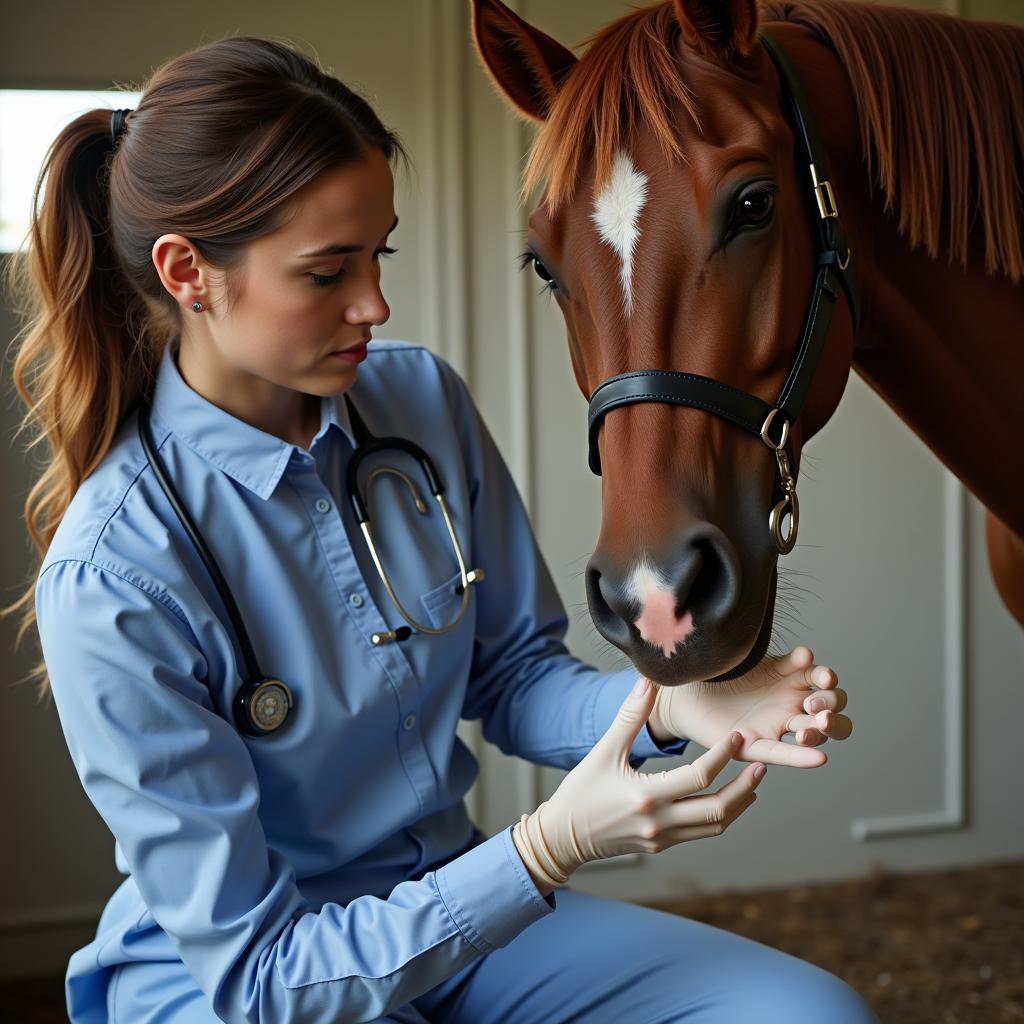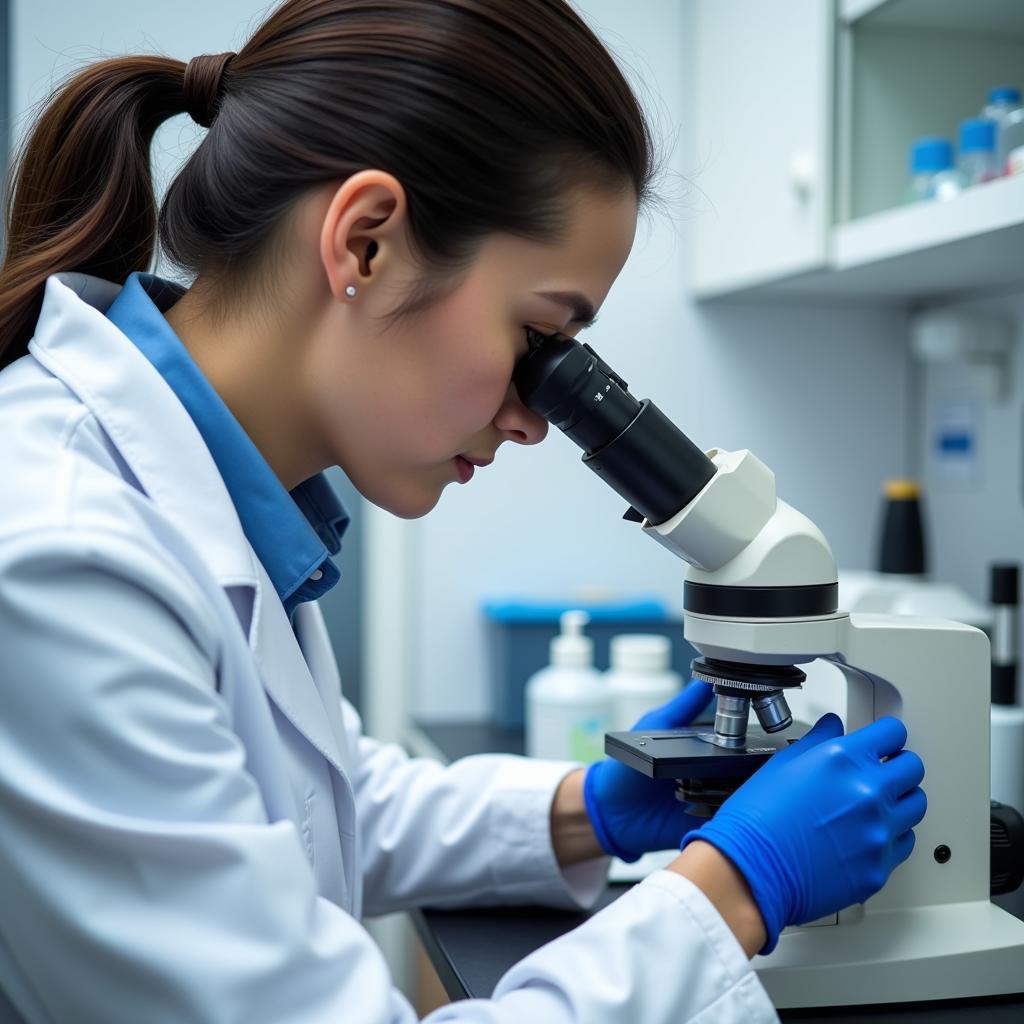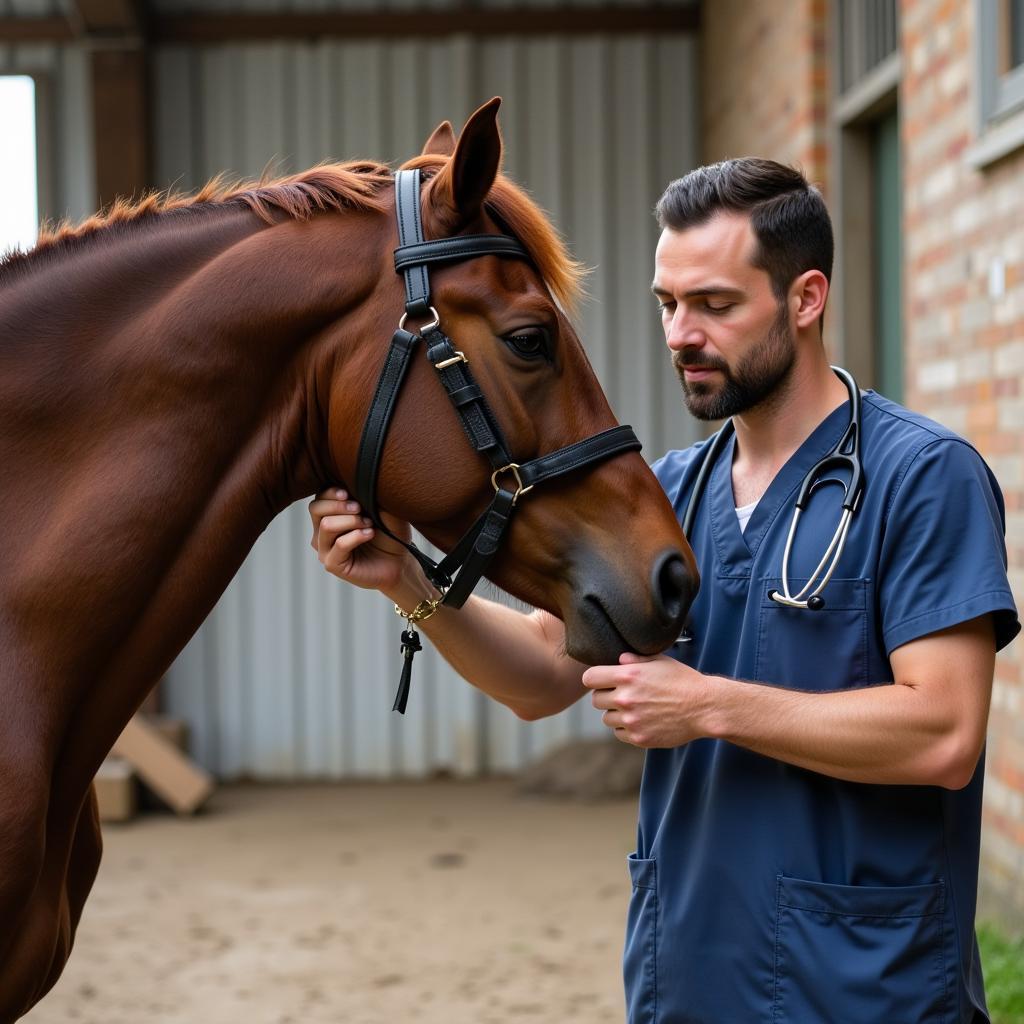Horse semen, the male reproductive fluid, plays a crucial role in equine breeding. Understanding its characteristics, collection, evaluation, and proper handling is essential for successful breeding programs and artificial insemination. This comprehensive guide delves into the intricacies of horse semen, providing valuable insights for horse owners, breeders, and enthusiasts alike.
What is Horse Semen?
Horse semen comprises spermatozoa, the male gametes responsible for fertilizing the mare’s egg, and seminal plasma, a nutritive fluid providing support and protection. Produced in the stallion’s testes, semen is transported through a complex system of ducts and glands, eventually ejaculated during mating.
Collection and Evaluation of Horse Semen
 Collecting Horse Semen
Collecting Horse Semen
Collecting horse semen typically involves using an artificial vagina to simulate natural mating conditions. This method ensures optimal sperm quality and quantity. Once collected, the semen undergoes a series of evaluations to assess its fertility potential.
Key parameters analyzed include:
- Volume: The total quantity of semen collected.
- Concentration: The number of sperm cells per unit volume.
- Motility: The percentage of actively moving sperm cells.
- Morphology: The shape and structure of sperm cells, indicating their normality and ability to reach and fertilize the egg.
Factors Affecting Horse Semen Quality
Various factors influence the quality and viability of horse semen. Understanding these factors is crucial for optimizing breeding outcomes.
- Age and Breed: Stallions reach peak fertility between 4 and 12 years old, with breed variations existing.
- Nutrition: A balanced diet rich in vitamins, minerals, and antioxidants supports optimal sperm production.
- Health Status: Underlying medical conditions, infections, and stress can negatively impact semen quality.
- Seasonality: Stallions exhibit peak fertility during the breeding season, typically spring and summer.
- Frequency of Collection: Frequent semen collection can temporarily reduce sperm reserves, while prolonged abstinence can lead to sperm aging.
Storage and Handling of Horse Semen
 Analyzing Horse Semen in a Lab
Analyzing Horse Semen in a Lab
Proper storage and handling are paramount for preserving the viability of horse semen.
- Cooling and Shipping: For immediate use or short-term storage, semen is cooled to 4-6°C (39-43°F). For long-term preservation and transportation, semen is cryopreserved by freezing in liquid nitrogen at -196°C (-321°F).
- Thawing Procedures: Cryopreserved semen requires careful thawing at specific temperatures to maximize sperm survival rates.
- Insemination Timing: Artificial insemination timing is crucial, aligning with the mare’s ovulation cycle to increase the chances of successful fertilization.
The Role of Artificial Insemination (AI) in Horse Breeding
Artificial insemination offers numerous advantages in modern horse breeding, enabling breeders to:
- Access genetically superior stallions: AI allows for breeding with stallions located geographically distant, expanding breeding options.
- Reduce the risk of venereal diseases: Using properly screened and processed semen minimizes the transmission of infectious diseases.
- Improve breeding efficiency: AI allows for multiple mares to be inseminated from a single ejaculate, maximizing the genetic potential of valuable stallions.
Common Questions About Horse Semen
What is the average volume of a horse ejaculate?
A stallion ejaculate typically ranges from 30 to 100 milliliters.
How long can horse semen be stored?
Cooled semen remains viable for 24-48 hours, while frozen semen can be stored indefinitely in liquid nitrogen.
What are the signs of poor semen quality?
Low volume, poor motility, and abnormal morphology are indicators of potentially reduced fertility.
 Veterinarian Conducting a Stallion Exam
Veterinarian Conducting a Stallion Exam
“Regular semen evaluation is crucial for stallions, especially those involved in breeding programs. It allows us to identify potential issues early on and implement appropriate management strategies to optimize fertility.” – Dr. Emily Carter, Equine Reproduction Specialist.
Seeking Expert Advice
For any concerns about your stallion’s fertility or assistance with breeding decisions, contact our expert team at Justus Horses USA. We’re here to provide guidance and support for all your equine breeding needs.
Call us at 0772127271, email us at [email protected], or visit our facility at QGM2+WX2, Vị Trung, Vị Thuỷ, Hậu Giang, Việt Nam. Our dedicated customer care team is available 24/7 to assist you.